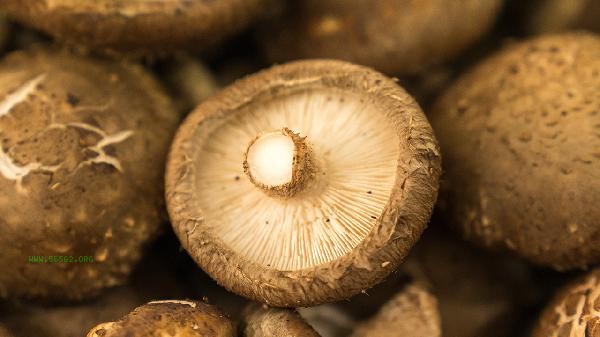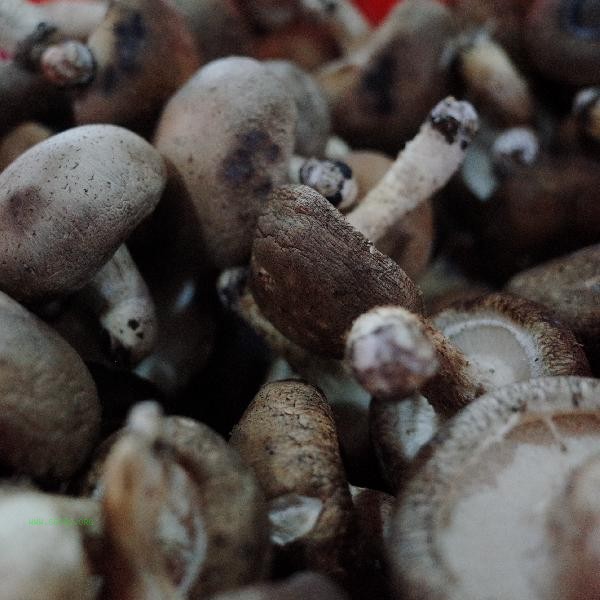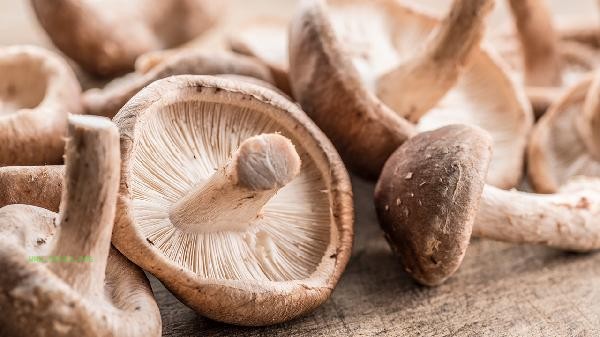The strange smell of shiitake mushrooms mainly comes from the volatile sulfides and special amino acids they contain. This smell can occur in fresh or dried shiitake mushrooms and is a normal phenomenon.

1. Volatile Sulfides
During the growth process of shiitake mushrooms, sulfur-containing compounds such as shiitake mushroom essence are synthesized, which have a stimulating odor similar to sulfur. During the drying process, water evaporation will concentrate these components, making the odor more prominent. Some people's olfactory receptors are sensitive to sulfides, which may amplify this particular odor sensation.
II. Special Amino Acid Metabolism
Mushrooms are rich in umami substances such as guanosine, which can produce moldy metabolites under enzymatic hydrolysis. Prolonged storage time or changes in environmental humidity can accelerate this process, leading to increased odor. The differences in amino acid composition among different varieties of shiitake mushrooms can also affect their odor characteristics.
III. Storage Conditions Influence
Improper sealing can cause shiitake mushrooms to adsorb odor molecules from the environment, mixing with their own odor components to produce complex odors. The high temperature and high humidity environment may promote the proliferation of microorganisms, decompose mushroom proteins, and produce odorous substances such as ammonia. Direct sunlight can cause photooxidation reactions to produce aldehydes and ketones.

Fourth, Differences in Variety Characteristics
Thick fleshed varieties such as shiitake mushrooms release more volatile substances due to cracked caps. Wild shiitake mushrooms contain more abundant secondary metabolites and often have a stronger odor compared to artificially cultivated varieties. The soil composition from different regions can affect the mineral absorption of shiitake mushrooms, indirectly altering their odor characteristics.
Fifth, cooking method related
High temperature stir frying can promote the volatilization of sulfides and reduce odors, while long-term stewing can integrate odor components into the soup. Paired with spices such as ginger and garlic, it can neutralize some odors. Soaking in cold water can reduce the release of odor substances more effectively than soaking in hot water, and extending the soaking time appropriately can help dilute strange odors.

Fresh shiitake mushrooms are recommended to be wrapped in kraft paper and stored refrigerated. Dry shiitake mushrooms should be sealed and stored away from light. Soak in light salt water for 15 minutes before cooking, or add a small amount of starch and rub before rinsing to help reduce special odors. For those who are sensitive to the smell of shiitake mushrooms, they can choose fresh products with a lighter odor or dried products that have undergone deodorization treatment. Cooking them together with meat ingredients can effectively improve flavor acceptance. The normal odor of shiitake mushrooms does not affect their nutritional value, but if there is a noticeable decay or mold, consumption should be stopped.








Comments (0)
Leave a Comment
No comments yet
Be the first to share your thoughts!